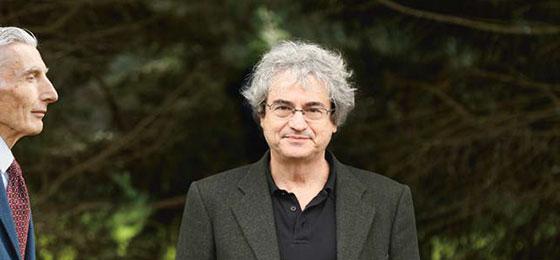Should we believe in parallel universes?

According to many theories, our universe is just one amongst many. But should we take them seriously without any experimental evidence? Two experts speak up.
(From "Horizons" no. 109 June 2016)
Yes, keep an open mind, says the astrophysicist Martin Rees.
How large is physical reality? We can only see a finite volume out to the horizon – a shell around us, delineating the distance light can have travelled since the big bang. But that shell has no more physical significance than the circle that delineates your horizon if you're in the middle of the ocean. We'd expect far more galaxies beyond the horizon, and we are surely comfortable that those galaxies exist even though we can't see them.
However, even this extended reality might not be the end of the story. While space and time could be limited to the aftermath of 'our' big bang, some theories suggest that our big bang is in fact one of many. In other words, what we've traditionally called 'the universe' may be just one island in a perhaps-infinite archipelago of space-time. That prompts the question: why should these domains have a different epistemological status to the galaxies beyond our visible horizon?
Some claim that unobservable entities aren't part of science. But I think that's the wrong way to look at things. We can't look inside black holes, but we believe what relativity says about their interiors because this theory correctly describes the phenomena that we can observe. Likewise, if we had a model that described the universe in its earliest moments and that model were based on physics that was corroborated in other ways, we should take the model seriously if it predicted multiple big bangs.
Another bone of contention is the idea (part of string theory) that each universe within the multiverse could be governed by its own set of physical laws. Were this the case, there would then be nothing surprising about the fact that we observe the fundamental constants – the numbers that determine the kind of universe we live in – as being tuned to permit the emergence of life. We would of course live in one of the universes where an observer could evolve.
This would mean that the fundamental constants are mere environmental accidents – secondary consequences of some deeper theory. That naturally disappoints ambitious theorists, who desire deep explanations for the world around us. But our preferences are irrelevant to the way physical reality actually is. We should surely be open-minded about the possibility of many universes.
No, evidence is insufficient, says the theoretical physicist Carlo Rovelli.
The world could be vaster than the region we have mapped out so far. In the past we repeatedly discovered it to be larger than we had thought. But at each step, it was evidence that convinced us. Seventeenth-century scientist Johannes Kepler showed that a Sun-centred model of the universe better predicted planetary motion than did an Earth-centred one, while at the beginning of the twentieth century the astronomer Henrietta Leavitt developed a new technique that revealed nebulae to be distant galaxies.
The multiverse has no such empirical basis. In fact, there are numerous, quite different, versions of the idea: a zoology of multiverse types, each with its own theoretical motivation. For example, some cosmologists posit many distinct big bangs, each generating a universe. Some physicists, meanwhile, try to make sense of quantum mechanics' strangeness by imagining that our universe continually branches out into multiple parallel universes.
An early version of the idea was put forward in the 1990s by the theoretical physicist Lee Smolin, who suggested that universes reproduce via black holes: each black hole giving rise to a new child universe. This mechanism implied a Darwinian evolution that selected the universes that generate more black holes – a fascinating extension of biological concepts to the cosmos. Indeed, Smolin, unlike many proponents of the multiverse, at least tried hard to deduce observational consequences.
A common argument offered to justify the multiverse is that it could 'explain' why the constants of nature appear to be fine-tuned to our existence. But this argument is upside down. The fundamental constants determine the way nature works and therefore what exists, not the other way around. If the constants were different, the universe would just be different – perhaps much richer and more complex, we don't yet know enough to say.
I hope it is clear that I respect colleagues who speculate. Maybe the multiverse idea will one day give us a serious testable prediction. But until then physicists should be cautious in selling their speculations as knowledge. It is easy for scientists to get carried away by their imagination, and the history of science is full of fascinating ideas that turned out to be useless. Claiming that we know what lies outside the presently observable universe is like saying that we have evidence for angelic choirs outside the fixed stars.
Sir Martin Rees is a professor at Cambridge University. He is Astronomer Royal and a former president of the Royal Society.
Carlo Rovelli is a professor at Aix-Marseille University in France. He co-founded the theory of loop quantum gravity.